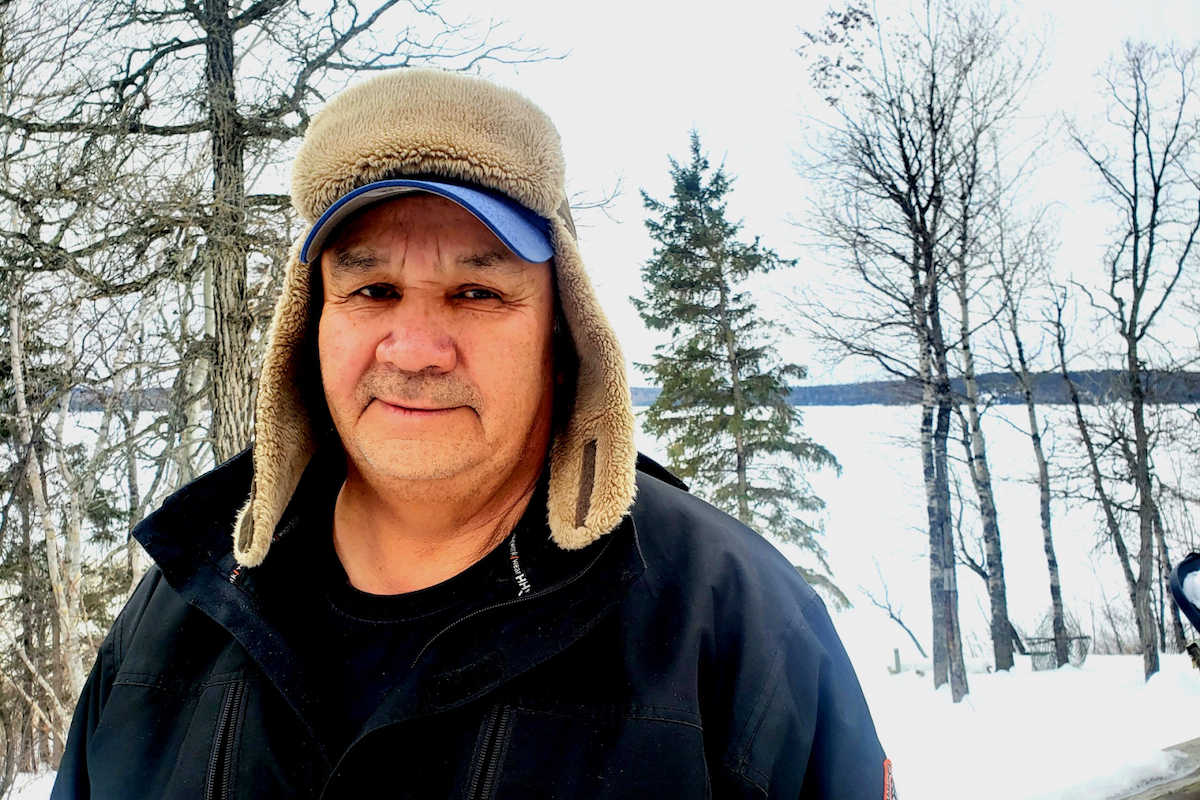Support strong Canadian climate journalism for 2025
Whichever party wins power at Queen’s Park in June, they’ll be hearing from Randy Fobister.
“We're not going away … we're still going to be a thorn in their side,” says the chief of Asubpeeschoseewagong Netum-Anishinabek, also known as Grassy Narrows First Nation.
The nation, about 80 kilometres northeast of Kenora, sits in the Kiiwetinoong riding, created in 2017. The area saw a close race in 2018 when NDP MPP Sol Mamakwa only beat his Progressive Conservative competitor by 1,467 votes. There are 32,987 residents in the riding, 68 per cent of whom are Indigenous, making it a riding where the Grassy Narrows vote matters.
The issue at the forefront of the race, at least for Grassy Narrows, is water. A decades-long history of mercury poisoning has rendered water in the Wabigoon-English River undrinkable and fish unsafe to eat for as long as Chief Fobister can remember.
That’s because between 1962 and 1970, Dryden Chemical Company dumped 20,000 pounds of mercury into the river system, catastrophically polluting the waterway. It’s estimated 90 per cent of people in Grassy Narrows and nearby Whitedog First Nation have some level of mercury poisoning, which is physically and neurologically harmful.
Now, with the provincial election set to take place June 2, Fobister is calling on whichever party comes to power to take the community’s concerns seriously and commit to visiting and meeting with the nation to discuss steps forward.

The nation also wants assurances it will be protected from further environmental damage from industrial logging, nuclear power and other industries. In terms of the parties’ promises so far, Fobister said he’s still waiting to speak with those running in the district to see what they’ll bring to the table.
“I think of it more from the treaty perspective,” he said, noting Grassy Narrows is in Treaty 3 territory.
Both the federal and provincial governments have been criticized for inaction around Grassy Narrows. The Ontario government has known about the contamination in some form since 1969, a Canada’s National Observer investigation found.
During the last provincial election, the Ontario NDP promised to clean up the mercury in the river and won the riding. Incumbent Mamakwa, who is a member of the Kingfisher Lake First Nation, said there’s been some assistance for the community at the federal level, such as funding for a care home for people suffering from mercury poisoning, which is set to open in 2023.
“That's important, but also they need some resources and the actual long-term funding for operations and maintenance … and I think that's what the NDP has committed to,” he said.
He said the Ontario NDP will fight for more monetary compensation for survivors of mercury poisoning, a swift cleanup of mercury and the location and removal of illegally buried mercury drums so “the fish, the animals, the plants can become safe for the community again.”
Grassy Narrows also needs protection from further industrial logging and mining, which the community is currently fighting against, he said. The nation has asked the province to notify prospective miners of legal risks to mineral claims in their territory, noting they took the province to court in November 2021 for not adequately consulting them about nine mineral exploration permits.
In terms of how the other parties measure up with action around cleaning up the mercury, Mamakwa said they “had that opportunity, but it’s not happening.”
Fobister said Mamakwa has done a good job advocating for the community since taking his seat and that “we share our stories — he definitely feels for Grassy Narrows.”
The Progressive Conservatives will be represented by Dwight Monck, the mayor of the Township of Pickle Lake. In a statement, the party said it wants to “achieve real progress.” Canada’s National Observer reached out to Monck for an interview, but he did not respond in time for publication.
“One of [the Conservatives’] first acts under this government was to index mercury disability benefit payments to people who hadn’t seen increases for inflation in as many as 30 years,” said part of a statement from the party, referencing an increase from 2018.
“As a result, people saw their monthly payment amounts more than double beginning November 2018, in addition to retroactive payments.”
The party said it acknowledges there are “no quick-fix solutions” but it is committed to progressing on the issues Grassy Narrows faces.
The Greens have called on the Progressive Conservative Party to do more for Grassy Narrows and pledged to immediately clean up the mercury. In the 2018 election, the Greens got 406 votes, or 6.72 per cent, in Kiiwetinoong. Suzette Foster will run in the riding this year.
The Liberals have yet to announce a candidate for the area, but in 2018, the party was represented by Sioux Lookout Mayor Doug Lawrance. In the party’s election plan released May 3, it committed to cleaning up mercury contamination in the St. Clair and English-Wabigoon river systems.
“We’ll work closely with municipalities and Indigenous communities to protect and restore Ontario’s rivers, lakes, wetlands and watersheds…” reads part of the platform.
“And we’ll strengthen oversight and environmental protections over gravel and aggregate mining before approving new mines.”
Fobister said the community doesn’t want any mining at all. He’s upset Progressive Conservative MPP Greg Rickford, who is also minister of northern development, mines, natural resources and forestry as well as Indigenous affairs, has refused to talk about mining in the territory with him.
Over the past four years, Fobister said he’s seen little action from the Progressive Conservative government, and he hopes whoever is in power come June takes actionable steps to clean up the mercury. He notes the Liberals promised $85 million towards cleaning up the river when they were in power.
“Our youth are born with mercury automatically, we're still going to teach our kids the history. Because we’ll still be here,” he said.
“But it would be amazing if the next government … they really come to the table and commit to clean up the river.”






Comments
1969.
Since 1969. And the then governments, and since governments, let the company walk. Scot-free.
And every government then and since has tried to slap bandaids (and muzzles) over the local people. "Let's not address the fundamental problem, that your water is toxic, that your land is poisoned--let's give you some sort of treatment facility for Minimata disease. Oh, and maybe some money. Now go away, we have bigger concerns, in parts of the province that have more votes, ya know."
And in the meantime, the river runs poison. Water. Fish. Soil.
I think the province, together with the feds, should be hauled before the UN or some other relevant international health organization--should have happened long ago.
This is what systemic and structural racism looks like. Ongoing.
In what conceivable non-Indigenous community in Ontario would this situation have occurred, in the first place, be excused, in the second place, and still poisoning people 51 years later?
Clean up the damned river, and every bit of soil it's affected. Return it to its pristine, and natural, and useable condition.
There are a lot of horrors that Canada, and Ontario, have inflicted on various non-white population groups over the decades, and centuries, but to me this is pretty damned close to the top of the list. Speaking as a WASP.
The human species has never actually come to grips with the facts. There are some unforgivable and unfixable damages mankind and capitalism/imperialism has inflicted on its only refuge in the universe that they just have to live with, adapt to and suffer from. Of course all that is much easier to bear when it happens in remote locations, inhabited only by "savages".
Perhaps the civilized guys are finally recognizing that they are running out of livable environments?
Time to pull up your socks and restore a liveable environment before the hedge funds gobble up all the viable land? Somebody failed to notice that nobody is making any more of it? How stupid is that?